When it comes to kitchen countertops, the possibilities are endless. Choosing the right one can be both exciting and overwhelming, given the variety of materials, colors, and designs available. Over the years, I’ve explored various kitchen countertop ideas, each offering its unique blend of aesthetics, durability, and functionality. For starters, granite countertops have long been a favorite for many homeowners, and for a good reason. Granite is not only beautiful but also incredibly durable. It’s resistant to heat and scratches, making it ideal for a kitchen environment where spills and accidents are common. What I love most about granite is that no two slabs are the same, so you get a truly unique piece of stone that adds character to your kitchen.
Another excellent option is quartz. Quartz countertops offer a modern and sleek look, perfect for those who prefer a more contemporary design. One of the significant advantages of quartz is that it’s non-porous, meaning it’s resistant to stains and doesn’t require sealing like natural stone countertops do. I’ve found quartz to be an excellent choice for busy kitchens where cleanliness and ease of maintenance are a priority. The color options with quartz are also vast, ranging from solid colors to patterns that mimic natural stones, giving you flexibility in your design choices.
If you’re someone who appreciates the charm of natural wood, butcher block countertops might be right up your alley. I’ve always found butcher block countertops to add warmth and a rustic feel to the kitchen. They’re particularly great for farmhouses or traditional-style kitchens. While they do require regular maintenance, such as oiling to prevent drying and cracking, the effort is worth it for the beautiful and natural look they provide. Plus, they’re perfect for food preparation, as you can chop directly on the surface.
For a more luxurious touch, marble countertops are hard to beat. Marble brings an air of elegance and timeless beauty to any kitchen. However, as much as I love marble, it’s important to note that it is more prone to staining and scratching than other materials. Therefore, it’s best suited for kitchens where heavy cooking isn’t the norm. If you’re willing to handle the extra care, marble can be a stunning centerpiece in your kitchen design.
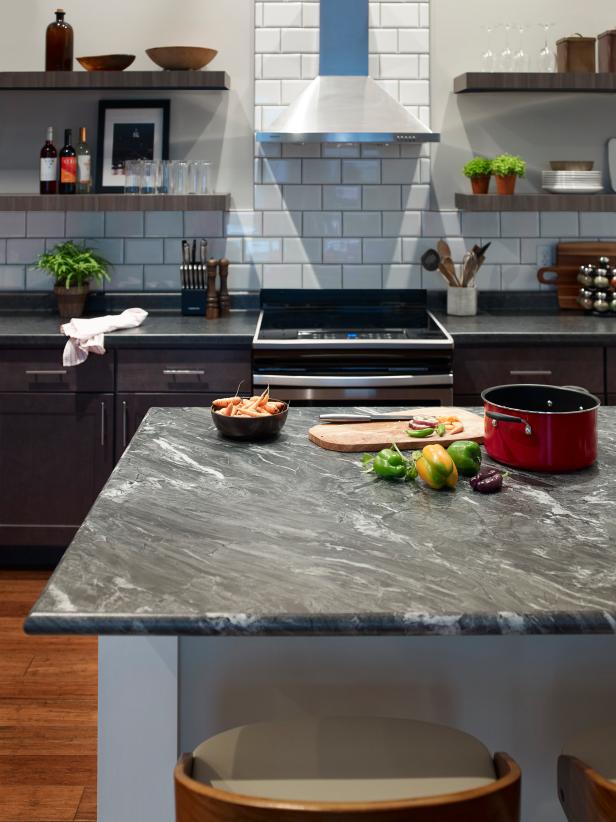
Concrete countertops have also gained popularity in recent years, particularly in modern or industrial-style kitchens. I’ve seen concrete countertops offer a unique, customizable option as they can be molded and colored to your exact specifications. The ability to integrate sinks or even embed items like stones or glass adds to their appeal. However, like natural stone, concrete requires sealing to prevent staining, and you should be aware that it can develop hairline cracks over time, which adds to its character.
If you’re on a budget but still want a durable and stylish option, laminate countertops are worth considering. I’ve always appreciated the affordability and versatility of laminate. These countertops come in a wide array of colors and patterns, including some that mimic high-end materials like granite or wood. While they may not offer the same durability as stone, they’re resistant to stains and easy to clean, making them a practical choice for many kitchens.
For a more contemporary and minimalist look, solid surface countertops are a great choice. Materials like Corian offer a seamless appearance, which I find particularly appealing in modern kitchens. Solid surface countertops are also easy to repair if they get scratched or chipped, and they’re non-porous, making them resistant to stains and bacteria. The ability to create integrated sinks and backsplashes without visible seams is another bonus.

Stainless steel countertops might be more common in professional kitchens, but I’ve seen them make a stylish statement in home kitchens as well. They’re incredibly durable, heat-resistant, and easy to clean, which is why they’re favored by chefs. The sleek, metallic finish can give your kitchen an industrial or modern look. However, they do tend to show fingerprints and scratches, so they’re best suited for those who don’t mind a bit of maintenance to keep them looking pristine.
Soapstone countertops are another option worth considering, especially if you prefer a natural stone that isn’t as common as granite or marble. I’ve always admired the soft, matte finish of soapstone, which gives it a unique and understated elegance. Soapstone is non-porous, making it resistant to stains and bacteria, and it’s also heat-resistant, so you can place hot pots and pans directly on the surface. Over time, soapstone develops a natural patina, adding to its charm and character.
If eco-friendliness is a priority for you, recycled glass countertops offer a stunning and sustainable option. These countertops are made from crushed glass set in a resin or cement binder, creating a beautiful and vibrant surface. I’ve found that recycled glass countertops can be customized with a wide range of colors and patterns, making them a versatile option for various kitchen styles. They’re also durable and resistant to heat, though you’ll want to use cutting boards to avoid scratches.
Another eco-friendly option is bamboo countertops. Bamboo is a rapidly renewable resource, making it an excellent choice for environmentally conscious homeowners. I love the warm, natural look of bamboo, which works well in both contemporary and traditional kitchens. Bamboo countertops are durable and resistant to moisture, though they do require regular maintenance to prevent damage from water and heat.
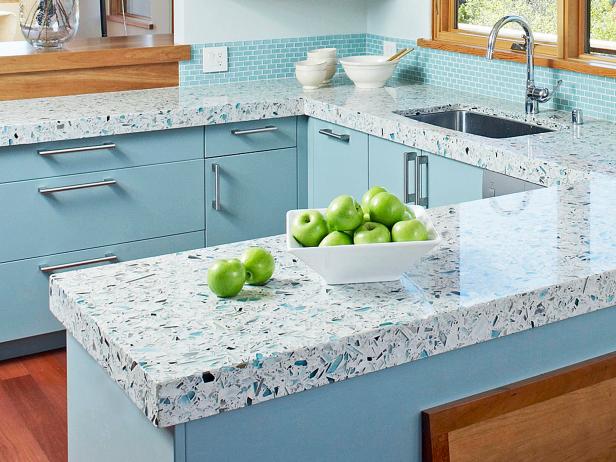
For those who want a unique and artistic touch, tile countertops can be a fantastic choice. I’ve always been drawn to the endless design possibilities that tile countertops offer. You can mix and match different colors, patterns, and sizes to create a truly personalized look. Tiles are heat-resistant and easy to clean, though the grout lines can be more challenging to maintain. However, if you’re up for the task, tile countertops can add a lot of character to your kitchen.
Copper countertops are another option for those looking to make a statement. I’ve seen copper used in both traditional and contemporary kitchens, and it always adds a warm and rich tone to the space. Copper is naturally antimicrobial, making it a hygienic choice for a kitchen. Over time, it develops a natural patina that changes its appearance, which can either be a pro or con, depending on your preference. If you enjoy a material that evolves and tells a story over time, copper could be a great fit.
For a truly high-end look, onyx countertops can bring a level of luxury and sophistication to your kitchen that few other materials can match. Onyx is a strikingly beautiful stone with dramatic veining and translucent quality that allows it to be backlit for a stunning effect. However, as much as I admire onyx, it’s a delicate material that requires careful maintenance. It’s prone to scratching and etching, so it’s best used in kitchens where it won’t be subject to heavy use.
Finally, if you’re someone who likes to mix and match, you might consider combining different countertop materials to create a unique and functional kitchen design. For example, you could use a durable material like granite or quartz for the main prep areas, and a more delicate or decorative material like marble or wood for an island or accent area. I’ve found that this approach allows you to enjoy the benefits of multiple materials while also creating a visually interesting and personalized space.
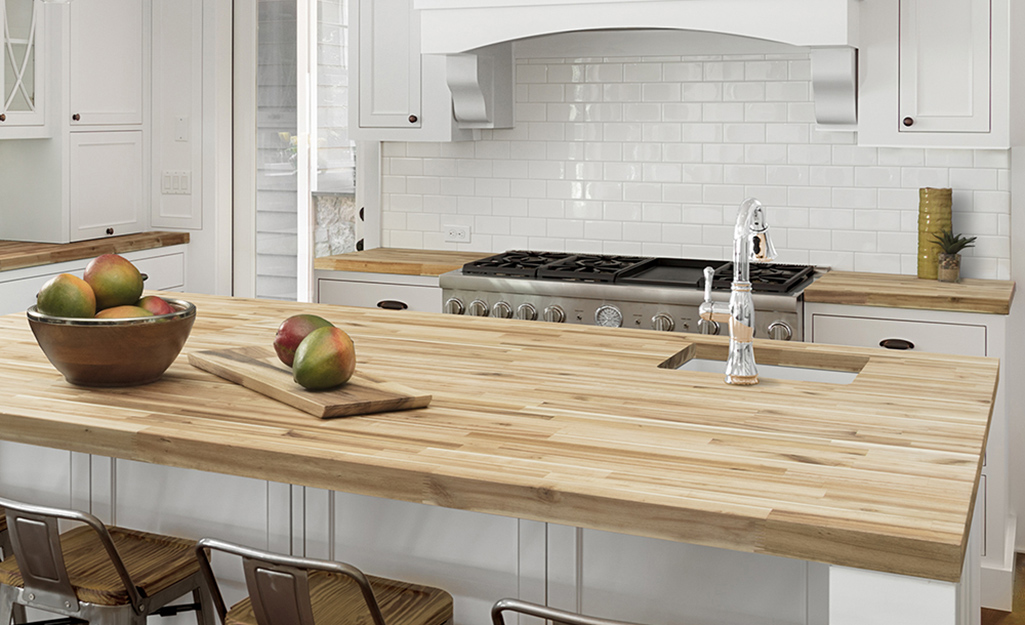
Common Mistakes to Avoid
When choosing kitchen countertops, it’s easy to get swept up in the excitement and overlook some crucial factors. One common mistake is not considering the long-term maintenance requirements of your chosen material. For instance, while marble is undeniably beautiful, it requires more care than quartz or granite, which are more resistant to staining and scratching.
Another mistake is underestimating the importance of durability. Some materials, like laminate, may be more affordable but won’t hold up as well in a busy kitchen compared to more robust options like granite or quartz. It’s also important not to ignore the kitchen’s overall style and color scheme. Choosing a countertop that clashes with your cabinets or flooring can disrupt the harmony of the space.
Last, don’t forget to factor in the cost of installation. Some materials, like concrete or onyx, can be expensive to install, so make sure your budget covers not just the material but also the labor costs.

What is the most durable kitchen countertop material?
In my experience, quartz is one of the most durable kitchen countertop materials. It’s non-porous, resistant to scratches and stains, and doesn’t require sealing like natural stone. Granite is also highly durable, offering resistance to heat and scratches, though it does need to be sealed periodically to maintain its appearance.
Are marble countertops worth the maintenance?
Marble countertops are worth it if you prioritize aesthetics and are willing to put in the necessary care. They offer a timeless and elegant look that’s hard to match. However, marble is more prone to staining and scratching, so it requires regular maintenance and careful use to keep it looking its best.
Can I mix different countertop materials in my kitchen?
Yes, mixing different countertop materials is a great way to create a customized and functional kitchen design. For example, you might use a durable material like granite for high-traffic areas and a more delicate material like marble or wood for an island or accent area. This approach allows you to enjoy the benefits of multiple materials while also adding visual interest to your kitchen.
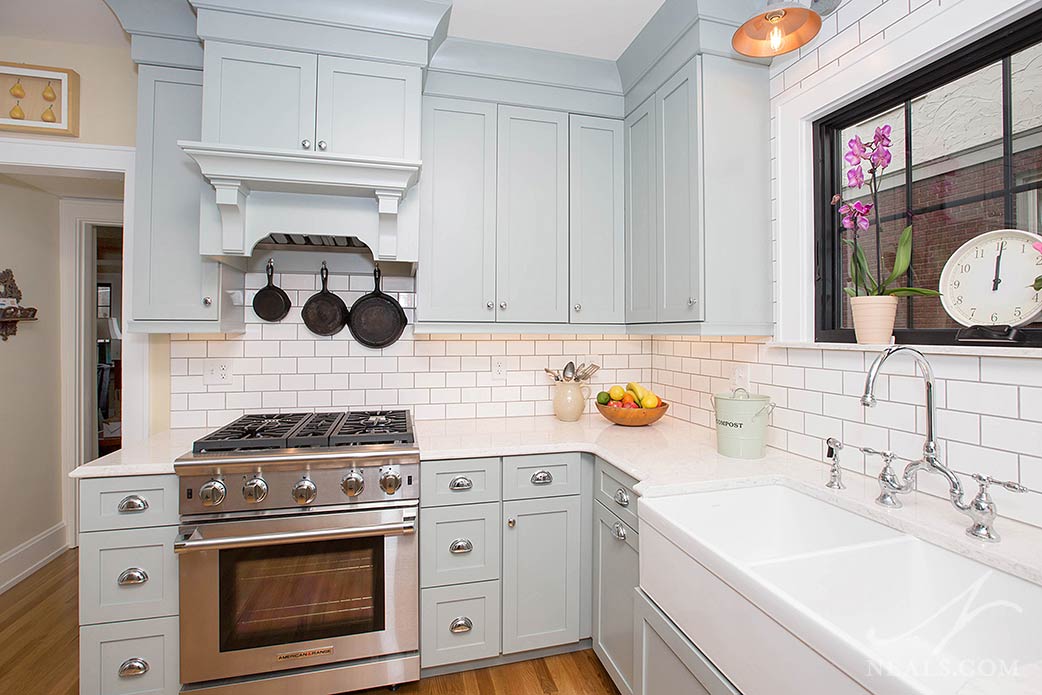
How do I choose the right countertop color?
Choosing the right countertop color depends on your kitchen’s overall style and color scheme. I always recommend considering the color of your cabinets, flooring, and backsplash when selecting a countertop. Neutral colors like white, black, or gray are versatile and can complement a wide range of styles, while bolder colors or patterns can make a statement if you want the countertop to be a focal point.
What are the best countertop materials for a budget-friendly kitchen?
If you’re working with a budget, laminate and butcher block countertops are excellent options. Laminate offers a wide variety of colors and patterns at an affordable price, while butcher block adds warmth and character to the kitchen. Both options are relatively easy to maintain and can be installed without breaking the bank.
How can I maintain my kitchen countertops?
Maintenance depends on the material of your countertops. For natural stones like granite and marble, regular sealing is essential to protect against stains and scratches. Quartz is easier to maintain as it doesn’t require sealing, and it can be cleaned with mild soap and water. For wood countertops, regular oiling is necessary to prevent drying and cracking. Always use cutting boards and avoid placing hot pots directly on the surface to extend the life of your countertops.
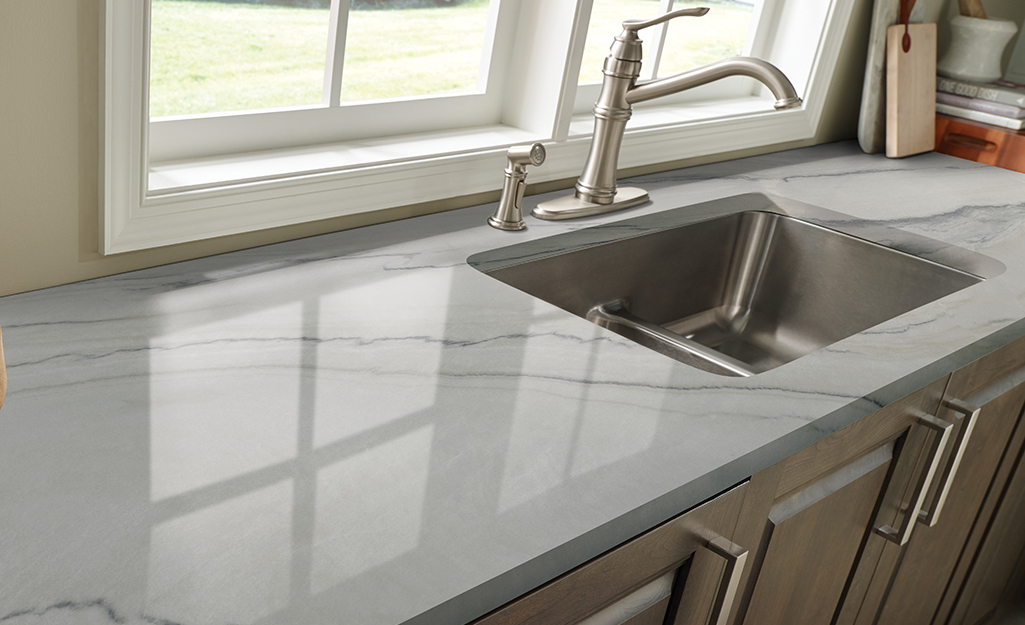
Related articles: